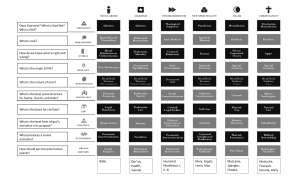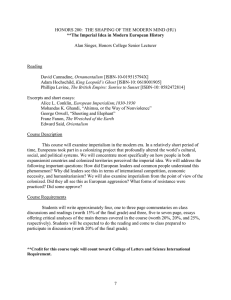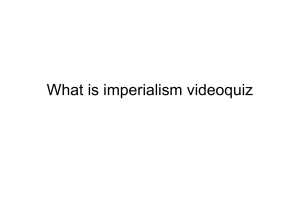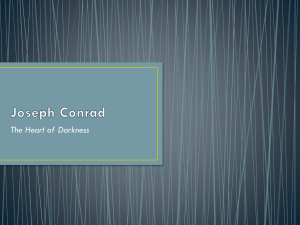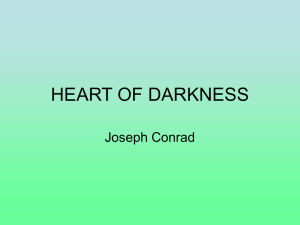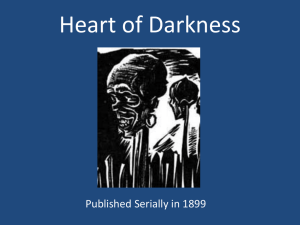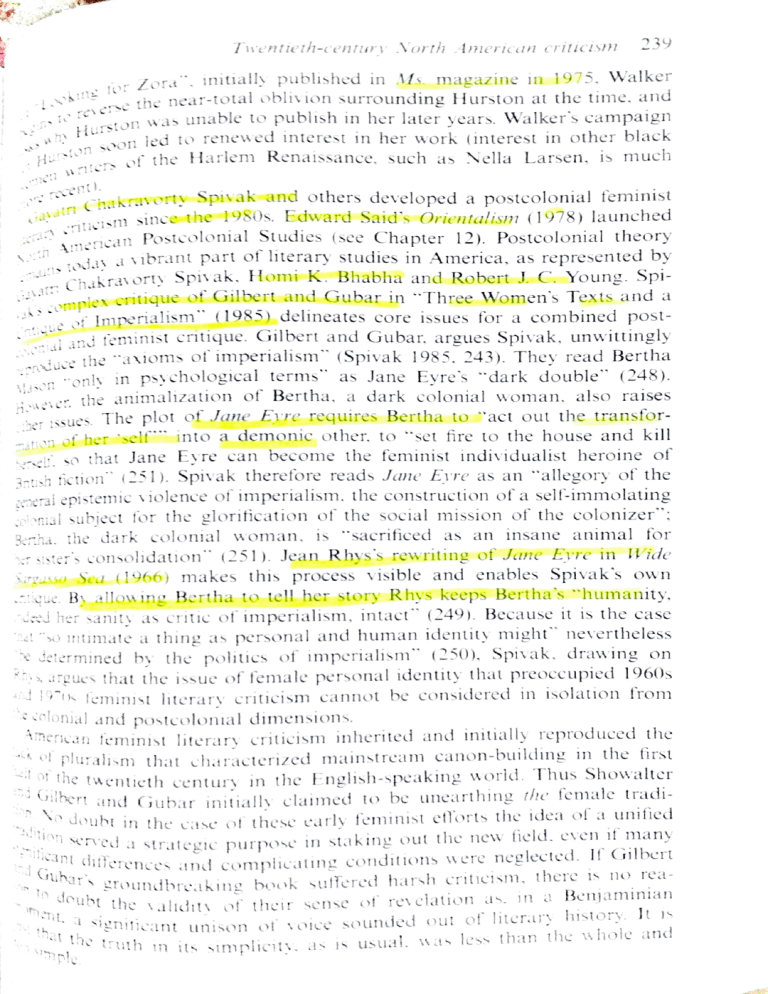
Twentieth-century North American criticishi 1975. Walker near-total oblivion surrounding Hurston at the time. and n e .rZora". initially published in Ms magazine T o r ere the 239 in re Hurston was unable to publish in her later years. Walker's campaign hy l e d to renewed interest in her work (interest in other black . Hu ers of the Harlem Renaissance, such as Nella Larsen, is much posteolonial feminist i s l since the 1980s. Edward Said's Orientalism (1978) launched Spivak Chakravorty and others developed a i c a n Posteolonial Studies (see Chapter 12). Postcolonial theory da a vibrant part of literary studies in America, as represented by ikravorty Spivak. Homi K. Bhabha and Robert J. C. Young. Spii23Chk of Gilbert and Gubar in "Three Women's Texts and piex eritique a Of Imperialism 98>) delineates core issues for a combined postnd minist eritique. Gilber and Gubar. argues Spivak, unwittingly "anioms of imperialism" (Spivak 1985. 243). They read Bertha o n l y in psychological terms as Jane Eyre's "dark double" (248). t h e animalization of Bertha, a dark colonial woman. also raises r ssuies The plot of Jane Exre requires Bertha to "act out the transfor- the house and kill of s o that Jane Eyre can becOme the feminist individualist heroine an "allegory of the 3nish tiction (25). Spivak therefore reads Jane Evre as meral epistemic violence of imperialism. the construction of a self-immolating lonial subject for the glorification of the social mission of the colonizer": 3ertha. the dark colonial woman. is "sacrificed as an insane animal for of her self into a on r sister's consolidation demonie other. to "set fire to (251). Jean Rhys's rewriting of Jane Evre in Wide Sirgasso Seu (1966) makes this process visible and enables Spivak's own e . By allowing Bertha to tell her story Rhys keeps Bertha's "humanity. ued her sanity as critic of imperialism, intact ntimate a thing as personal and human (249). Because it is the case identity might nevertheless determined by the politics of imperialism (250). Spivak, drawing on s rgues that the issue of female personal identity that preOCcupied 1960s leminist literary criticism cannot be considered in isolation from *olonial and posteolonial dimensions. CTAn feminist literary criticism inherited and initially reproduced the in the first uTalismthat characterized mainstream canon-building worid. Thus Showalter tne twentieth century in the English-speaking tradiGubar initially claimed to be unearthing the tenmale ad the rdea ol a unified the case of these early feminst etlorts erved a strategic purpose in st.tking out the new field. even if many Nodoubt t in ant ditferenees conditions were neglected. a n d complicating critieism, there Cuh roundbreakingbook sulfered harsh to deubt the nl gniticant itn tn a is no rea- Benjaminian eiation of their s e n s e of rev hIstory, Jt is VOICe sounded out of literary of unis the Whole and w a s less than as is usual. ds. alidt that in If Gilbert its simplicity. S4rom Ductual m to poststructurali of n nes of becoming becoming-minor becominganimal (un Kat. And Melvle). becomng-woman tin Woolh. becoming-imperceptuble some of the lines of ecomng Deleuze and uattari explored in n tel telatiun to hterature (see Chapter 10 of 4 Thousand l'lateuus) Perhaps the dist ness of Dcleuze and Guattari's literary thecory. in the midst of endlesd hleratmg concepts and neologisms Is the ongong attempt to conno keep reconnecting lhterature amd the imagination (lantasy. delirium ih investment) and formal experimentation and political expeTimentation ndinal Jacques Derrida One of the best introductions to Jacques Derrida (1930 2004) 1or a lte iterary crtical audience is his collection of essays. Acts of Lilerature (1992) edited Derek Attridge. In Chapter 1 we discussed Derrida s reading of Plat Phaedrus |Derrida 1981bl and in Literature [Dernda 1992b]). Chapter his essay 5 on Mallarme in In his "Introduction: Derrida and the Questioning of Literature" outlines Derrnda's understanding of literature as "potential "resistance" o's 4ta Atrida. dge challenge and presence" the "logocentrism or the "metaphysics of assumptions. concepts and oppositions ofl the Western philosophical to tradtion since ancient Greece and Plato (Attridge 1992. 3-4). As we discussed earher (see Chapter 1). for Derrida this tradition sets up a system of binary oppos tions. such as presence/absence. essence/appearance, inside/outside. same/other. man/woman, terms are understood as extemal to true/talse. etc. Within each each other, the good/evil opposition. the two tormer term is valued. and the latter devalued. The valued term is understood as an "inside completely insulated from the "outside inhabited the by devalued term. Derrida's readings (e.g. his reading of Plato's Phaedrus) focus on moments in philosophical and literary texts, 1.e. moments self-deconstructive the binary oppositions they have establ1shed. crosSsing the border undoing opposing termsand thus resisting logocentrism trom within. In The between Second Sex (1949 Simone de Beauvoir argued that patriarchy is based on the binary opposition man/woman (see Chapter 10). while in Orientalism (1978) Edward Said argued that the binary opposition West/Orient was fundamental to the project of imperialism (see Chapter 12). Beauvoir and Said illustrate why "logocentrism requires subversion and why there is a strong ethicalclearly dimesion to Derrida's call to challenge and resist "logocentrism. For Atridge literary studies are "dominated" philosophy, because they lack "philosophy's by logocentrism. more ihan long tradition" of self-cmtical retlection (Attridge 1992. 3). At the very least Derrida and Atridge are call self-retlexIVe iterary eriticism that logocentriISIm. It can be argued that Derrida participates in the critiquc chose to perform close of Mallarmé and readng other modernist literary texts tance to tnett because exactly logocentrism ing for a Ice announces, is "particularly strong" (4). or that their "better than clsewhere", iterar the "subverSIon of logocen 7sm Fminisms, postcoloniul theory, roce describe the modern Western function of rac Sedgwick was of corse Edward Saids (1935 2003) pathbreaking Orientallin (1978) nosing Foucault's work to postcolonial theory and Postcolonial Studies familiar with transposing dopts Said adopts m o d m e r n Foucaults concept of "dicoure in order to describe the Western discourse of Orientam I have found it useful here to employ Michel Foucault's notion of a d course. to identily Orientalisn. My contention is that without ining Orientalism as a discourse, one cannot posibly understanid t enormously systematie discipline by which European culture was ablie to manage andeven produce-the Orient politically, sociologically, mrilitariy jdeologically, scientifically, and imaginatively during the post-Enlightenimen period. (Said 2003, 3 Orientalismjs the "nexus of knowledge and power creating the Oriental (as an cssence and in a sense obliterating him as a human being" (27) As a lit erary critic by training, Said is especially attentive to literature. analyzing the ways in which literary works construct the Orient as the binary opposite of the West and as an eternal and immutable essence without history. While showing the participation of European literature in the project of colonialism and the discourse of Orientalism, Said is keen to claim a degree of freedom and originality for the writer and scholar: (Unlike Michel Foucault, to whose work I am greatly indebted. I do believe in the determining imprint of individual writers upon the otherwise anonymous collective body of texts constituting a discursive forma- tion like Orientalism .. Foucault believes in general that the individual text or author counts for very little.. [M}y analyses employ close textual readings whose goal is to reveal the dialectic between individual text or writer and the complex collective formation to which his work is a contribution. (23-4) Said anticipates New Historicism here (see Chapter 11). His double readings explore texts both in their complicity and their degree of freedom. Rather than asking whether a text reproduces or resists Orientalism and imperialism, close reading would specify in what sense a text reafirms Orientalism and in what sense it questions it. In Culture ad Imperialism (1993), the sequel to Orientalism, Said retines his method further and addresses contemporary American neoimperialism. He names and theorizes his method of reading as "contrapuntal" reading. exemplified by his reading of Conrad's Heart of Darkness. Said's starting point is his diagnosis of an authoritarian hardening of two intellectual camps In the 1970s and 198Os: a neoimperial or neocolonial camp (representai postcolonial within what by literature 'they are", and malaise: as V S. Naipaul, the single an of the tor example) p o s cause of' the "blaming camp present" (Said 1993, 20). US - i n d e p e n d e n c e for as Europeans developmentwhich This "the last "triumph" of tlie with the last chapter misfortunes t sweepingly continuing anticolonial World "fo the Third Thindl World blaning Femninisns, 324 the race heory, is a superpower" (341) m tt e r al l i m e rn na at ti io on na er ri io ou us s se has its s y n p l o m s o n e of that "apostles of Said claims and poststructuralist horizons" (29). of other s e n s e that and a Foucault and in iberation change" of "dramatic (29). been a in the politics stuck within a Circle "disappointment a are theory to: we postcolonial look forward to positions Said there is *nothing i n c l u s i v e critical resignation, Said connects neoinmperialism in his American "constriction Tadicalism: Foucault's perceived Against his and particularly "contrapuntal" reading as an and open a dialogue two the between staging of the task antagonisns to the urgent "loud contributing the and practice authoritarian to bothbccause their is equally opposed Said camps anti-imperialists" attitude Said's Soeratic of debate of pro- and "interchange" (29). righteousness disable and the just, the dogmatism the blameless, polarized faithful, led by the "stand and others" (29), is that inside each camp about themselves truth the term. Counler who know a musical omnipotent, those adapts reading "contrapuntal" simultaneous sounding of the technique "involving polyphonic musical 2003). Said melodies" (Collins Dictionary Said's concept point is a parts of two or morevisions or Heart from Conrad's of Darkness, made derives two possible by marginality" (Said outsider", his "exilic colonial Conrad's The first vision is a (32). subjectivity" "dislocated have an 1993, 27) and his on the Nellie Marlow's British audience and Marlow vision. Kurtz, time" (33)-and Conrad are "creatures of their worldview they an imperial nor can he imagine is outside" their worldview cannot show us "what this simultaneous "self-consciousness as an - "alternative to vision is the imperialism" (28). As sense imperialism" (26). racist text, as we a result, the "oppressive force" of historical force of that there is "no way out of the sovereign Darkness (Chinua Achebe, similarly, read Heart of discussed in as a Chapter 8.) narrative makes possible a second However, the self-reflexivity of Marlow's and the "disvision. Marlow's "meticulously staged" narrative performances as locations" in his language self-reflexively "draw attention to themselves artificial constructions" (Said 1993, 32). This "unsettles" the reader's idea of in a world being made and unmade.. all the time" (33). Thus, at theveryleast, Conrad "shows us" that Marlow's colonial vision is "contingent, acted out for a set of like-minded British hearers, and limited to that situation" (26). Further, and more impor empire and of "reality itself", so that "we are tantly. Conrad thereby allows for another world beyond his own grasp. The very "provisionality" of Marlow's narrative situates it at the "juncture" of his imperial world with "another, unspecified but different" (27), so that Conrad allows certain kind of reader to sense "a larger history... just outside Marlow's worldview (26) and "inaccessible" to Conrad himself (32). Conrad in effect intuits that what he calls the darkness is beyond him and has a world volunteered for service in France and returned to theM respectable protestant businessmen with American citizenship hef war. He - \it Sernes dle Ea_ Eas before making arranged marriage to the daughter of a Baptist minister from Nazareth. In Out of Place (1999), the memoir of his childhood and youth, Said don. father, who called himself William to his emphasise American id overbearing and uncommunicative. His victorian strictnessadopted lentit instilled in Said"ado of "a deep sers generalised fear", which he spent most of his life Said owed the driveness trying to overcome. To his ffathe that brought him his remarkable of leisure or achievements. described h he wrote. "Ihave no con relaxation and, more no sense of cummulative "Everyday for me is like particularly, empty summer behind it, and an the beginning of a new term at school, oncep achievemen with a vast ana uncertain toniorrow before it". and to Said, his According un-Arab Christian name sense of induced a split in his identity, between "Edward", his adolescen ridden outerself, and the "lo0se, of my irresponsible, fantas inner life." himself asmetamorphoses Bright but rebellious, having been a leadingprivate he described troublemaker at Cairo's Victoria style public school. Whose as Omar Sharif. snooty captain Michael college, the British Shalhoub would later achieve celebrit Sent at his father's insistence to Mount Said blossomed Hermon, a private but lacked the academically in school Massachusetts outstanding student. He right attitude to be which he found responded positively to the American acknowledged as an more approach in Cairo. imaginative and stimulating than approach to essay writing the The contrast buttoned-up British between his recognition clearly marked himburgeoning academic distinction and much as the work of his deeply. He would claim that the absence of formal more Blackmur, Antonio Gramsci, widely acknowledged intellectualit was his experience, as Theodor Adormo, that influenced his mentors, including RP anti-authoritarian outlook. Raymond Williams and Michael Said's engagement with Foucault Palestine drew on affection for his deep emotional Jerusalem aunt Nabiha, his father's: roots, life to working with Palestinian refugees in 's sister, who after particularly his 1948, Cairo, political aspects of the dispute in Said's devoted her she she never devo although discue Until presence. his 30s, occupied with his studies, discussed the Edward wae progressively was too grac graduate school, developing his critical smoothly through Princeton Princeton and and Harvapremusic, especially the and methodologies rvard at which he his indulging piano, ndulging hi s passion achieved passion an almost for competence, to take much interest in the professional la of his politics the Arab homeland. It of defeated 1967, which unleashed a second wave of was the traum refugees fromn the 1948 exodus), that shocked him out ofrefugees (many of tho hem what he would his earlier complacency, come ne to him reconnecting with his former self. already see as in Postcoloniel Literature 21 Said's writings on English literature, such as Cultural and Imperialism (199), and western classical music drew heavily on his sence being on outsider Like Joseph Corirad, subject ot his P'hD thesis and first published book, he retained an "extra-ordinarily persistent residual sense of his own exilic marginality", which enabled him to deploy a the kind of double vision in his readings of the English novel, discerning the invisible colonial plantations that guarantee the domestic tranquillity of Mansfield Park, or finding in Conrad's selt-consiously circular narrative forms the sense of the potentiality challenges to western hegemony that would erupt during the post-colonial era of tne Where African writers such as Chinua Achebe dismissed Conrad as a racist, suggesting that, whatever his gifts as a writer, his political attitudes must make hin despiable to any African, Said saw such reasoning as amounting to spiritual, intellectiuai and aesthetic amputation. Contrary to the assumptions sometimes made about him, he did not consider that the hidden political agendas and attitudes of cultural suprernacy that he regarded as informing the canons of western culture from Dante to Flaubert necessarily diminished their artistic integrity or cultural power. Versatile and subtle, Said better elucidating distrinctions than formulating systems. A Christian humanist with a healthy respect for Islam, he was a member of the was at academic elite; yet he inveighed against academic professionalism, venturing into territories well outside his area of speciality, insisting al ways that the true intellectual's role m ust be that of the amateur, because it is only the amateur who is moved neither by the rewards nor the requirements of a career and who is therefore capable of disinterested engagement with ideas and values. The unusual complexity of his background-privileged yet marginal, wealthy yet powerless- allowed him to empathise with dispossessed people, especially the victims of Zionism and its western supporters, while enjoying in the fullest measure the cultural riches of New York, a city that rang louder than any other with Jewish achievement and success Edward Said, who has died aged 67 on September 25, 2003 was one of the leading literary critics of the last quarter of the 20th century. As professor of English and comparative literature at Columbia University, New York, he was widely regarded as the outstanding representative of the post-structuralist left in America. Above all, he the most articulate and visible advocate of the Palestinian where it earnet him many enemies. was The broadness of Said's approach to cause in the United States literature and his other great love, classical musik, eludes easy categorisation. His most influential book, Orientalism (1978), is credited with helping to change the direction of several disciplines by exposing an unholy between the enlightenment and colonialism. As a humanist with thoroughly alhance serular Lit Series 22 Utiok, hus critique o n the great to be self-contradictory, traditions the tradition of deploying humanistic a conforts to of hurnanism, giving culturally Whatever its sensitive a r e a s flaws, however, discourse fundamentalists while calling off-limits, as t h e i r tradition o r texts Tesearch into western enlgitenment such into seemed to m a r . to attack the who cultur high criticis regarded any question the integrity of critica as Islam. Orientalism appears at a n opportune countries non-western (many of time, enablin, whom c a u s e from academics from the mood of politica upwardly nobile take advantage of to from colnialism) tarniies who had benefited "narratives of oppression" themseles with associating c o r f e x t r e s 6 it helped to engender by representations interpreting and debating transmitting, of out c a r e e r s successful creating of the non-western "otherT" Said's influence, however, and scholarly was of academic confined to the world for from being in America, he distinguished discourse. An intellectual superstar television opeta critic, painist, and public lecturer. as an Latterly, he was one of the celebrity, politician, most trenchant of Yasser Arafat. He leadership magazine commentary, rightwing Palestinian peace process dubbed "Professor of terror" and the by the struggling against his status a s Palestinian refugee the sarne magazine accused him of falsifying American eukaemia, expert, popular essayist media critics of the Oslo was himself to enhanve his advcacy of the Palestinian in 1999, when he cause, and of falsely was claiming to have been at chool in Jerusalem before completing his education in the United States The circdes in New York was predictable hostility Said encountered from pro-Israeli Palestinians and Israeli violations of the human rights of Middle East. From the other side of his outspoken condemnations of US policies in the Palestinians who accused him of the conflict, however, he encountered opposition from to Zionism. sacrificing Palestinian rights by making unwarranted concessions given his trenchant attacks on As early as 1977, when few Palestinians were prepared to concede that Jews had historic claims to Palestine, he said, "I don't deny their claims, but their claim always entails Palestinian dispossession". More than any other Palestinian writer, he qualified his anti-colonial critique of Isreal, exlaining its complex entanglements and the problematic character of its origins in the persecution of European jews, and the overwhelming impact of the Zionist idea on the European conscience. Said are recognised measured owed that Isreal's everything exemption to the from the normal criteria Holocaust. But while by which natio recognising its unique significance, he did not see why its legacy of trauma and horror should be exploitea deprive the P'alestinians, a people who were "absolutely dissociable an entirely Furopean complicity" of their rights. from what has x Pastwonial Lterature 23 Thequestion to be asked, "he wrote in the politics of Dispossession (1994), is "how g can the history f anti- semitism and the Holocaust be used as a fence to exempt Isreal from arguments and sactions against it for its behaviour towards the P'alestinians, rguments and sanctorns that were used against other repressive governments, such as South Africa ? How long are we going todeny that the cries of the people of Gaza. are diretly connerted to the policies of lsreal government and not to the cries of the victims ot Nazisn? Sad insisted that the task of Isreal's critics was not to reproduce for P'alestine a ideology of diaspora and return, but rather to elaborate Arabs and Jews. Elected to the Palestine secular vision ot demoCracy as applicable to both Said avoided taking part National Council (P'NC) in 1977, as an independent intellectual, while using his authority to make strategic interventions. in the tunctional struggles, because of the legacy of the as Rejecting the policy ot armed struggle impermissible advocate of conditions of the Jewish people - he was an early the and sperial Holocaust adopted Isrea>'s right to exist. The policy two-state solution, implicitly rexcognising mirror-inmage ot a 1onust a was the at the PNC meeting in In adapting Algiers in 1988. Said used his influence English version of the Arabic draft text, insufficient although his modifications were the rephrase the Arabic, to satisfy the to Reagan Arafat's that appeared in dictating the crucial words administration, which ended because the assembly (convened in Geneva UN the of general session speech to a special in New York), there Arafat a visa to attend the UN by US state department retused to grant American media, explaining tireless representations in the Said's that doubt can be little Palestinians on the part of the "historic compromise" a to amounted that the declaration to US-PLO dialogue that would lead the for the way the Jewish state, opened towards the Oslo process. the Madrid conference and however, Said adopted an increasingly momentum, As the peace process gained declaration, he argued, was from the PNC. The Oslo critical stance and in 1991, resigned lsraeli withdrawal from an scenerio, previsioning towards Isreal; the status of unfairly on the final weighted arnd agreement territories of the other Versailles". Gaza and Jericho in advance surrender, a Palestinian "an instrument Palestinian The best Jerusalem amounted to of of thorn in the side Palestinian authority. the censorship by became the subject of exile Palestinian conscience the liberal known and most distinguished s t a n d a r d - b e a r e r s of one of the IPresident o w n people, surTounding Epresentatives of his corruption and intolerance illiberal climate of To the end, Said n tne increasingly Arafat and his regime. remained a

